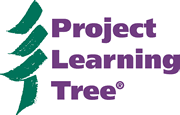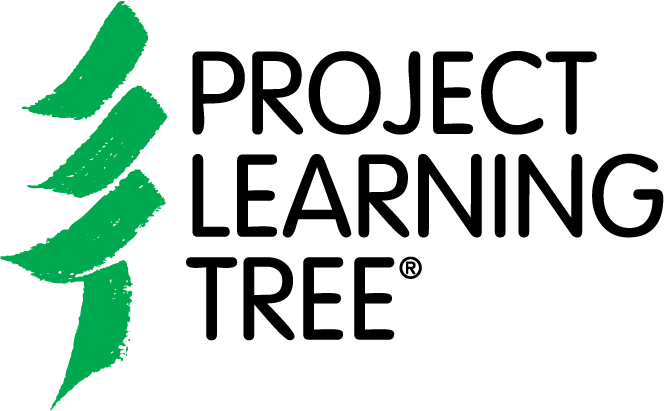How do I get PLT’s curriculum materials?
You must participate in an online or in-person professional development workshop to receive most of PLT’s curriculum materials. The workshop description will indicate which PLT material(s) you will receive.
May I purchase PLT’s curriculum materials?
Most PLT curriculum materials (printed or electronic) are only available by participating in an online or in-person professional development workshop. Some select curriculum materials are available for purchase. To see the current offerings, go to http://shop.plt.org.
What happens in PLT’s professional development workshops?
PLT’s workshops are highly engaging and active learning experiences that provide participants the knowledge, skills, and inspiration to teach environmental education. Depending on the grade-levels, themes, and content being covered, they may range from a few hours to several days. The number of participants typically ranges from 10 to 30.
Workshops are usually designed and delivered by a local facilitator and/or state coordinator. They are often open to all types of formal and nonformal educators and held in central locations periodically throughout the year. They can also be tailored to meet the needs of a specific audience at their own site.
Who can attend a workshop?
Anyone. Most participants are K-12 classroom teachers, early childhood educators, college students, curriculum specialists, nature center staff, natural resource professionals, youth group leaders, out-of-school educators, and many more. If you want to teach youth about the environmental, PLT is for you!
Where are workshops held?
- All 50 states, DC, Puerto Rico, Mexico, Japan, and other countries.
- In-person at schools, state parks, community centers, nature centers, museums, and more
- Online from the comfort of your home or workplace.
How much do workshops cost?
- Full day in-person workshops tend to range from $25-50. The cost varies based on the duration and location of the professional development.
- Online workshops range from $25 to $40.
What supports are available?
- PLT is a learning community. You join an extensive network of professionals who care deeply about teaching our youth about the environment. State coordinators are keenly interested in supporting you and are very well connected in their states to just about every person, program, and place that helps to deliver environmental education. Workshop facilitators are also terrific resource people, always ready to lend a hand. PLT is also well-known for building a sense of community among educators trained in its materials, including those who have been recognized as National PLT Outstanding Educators. Olivia Griset’s post about her State Coordinator exemplifies this sense of community and mentoring.
- Abundant online resources build on and extend PLT’s curriculum materials in meaningful ways. Click on Resources to see all that is available. The list is too long to put here!
- Grants. All educators trained in PLT are eligible to apply for GreenWorks grants for students to implement environmental improvement projects. By blending community service with the academic curriculum, students are “learning by doing.” The annual deadline to apply for a Greenworks grant is September 30.
What is the difference between online and in-person workshops?
- Online workshops are completed at the convenience and pace of the participant. Each self-paced course is composed of several 20-30 minute learning experiences, called coursels. An e-book or an e-unit is provided during and after the course.
- Current online courses are designed for early childhood, Kindergarten through grade 8, and the GreenSchools program.
- In-person workshops are organized by individual states around the country. They typically last 6 hours, but may range from a couple hours to several days depending on themes and content. Printed curriculum guides are distributed during the workshop.
- In-person workshops may be open to all types of educators or tailored to specific audiences and topics.
Can I earn credits for attending a PLT workshop?
- Educators may receive Continuing Education Units (CEUs), in accordance with state or local policies. College credit may be offered for longer and more intensive professional development offerings. PLT can be counted towards Environmental Education Certification credit in some states.
- Continuing Forestry Education (CFE) credits are also offered in some states for in-person workshops. Currently three of PLT’s online workshops have been approved by the Society of American Foresters for Category 2 credits (Early Childhood – 1.5 credits; K-8 – 2.5 credits; and GreenSchools – 3.5 credits)
- Contact your state coordinator with any specific questions about credits offered for workshops in your state.
Will I receive a certificate for completing PLT’s professional development?
Yes. Your certificate will include the number of hours required to complete the workshop.
Are workshops ADA-compliant?
- Most in-person workshops are held at ADA-compliant facilities. Contact the organizer of a specific workshop to be sure.
- Online workshops make accommodations for disabilities (such as printable version of the course and audio transcripts for each screen), but do not meet all requirements for full compliance.
Attend A Professional Development Workshop
PLT offers online and in-person workshops tailored for specific grade levels, academic standards, environmental topics, and formal and nonformal teaching situations. Consistently rated as one of the best professional development events they have ever experienced, most educators attend a PLT workshop because they were recommended to it by a colleague. Learn more at plt.org/trainings/attend-a-training.
During PLT’s hands-on training you will:
- Learn new teaching skills and become comfortable teaching outdoors.
- Receive PLT’s instructional materials and supplements tailored to your state’s standards.
- Practice modeling PLT activities and get tips for lesson planning specific to your educational setting.
- Get access to a network of professionals and support.
- Earn continuing education credits.
We encourage you to contact your state PLT Coordinator directly with any questions that may not be answered here.

